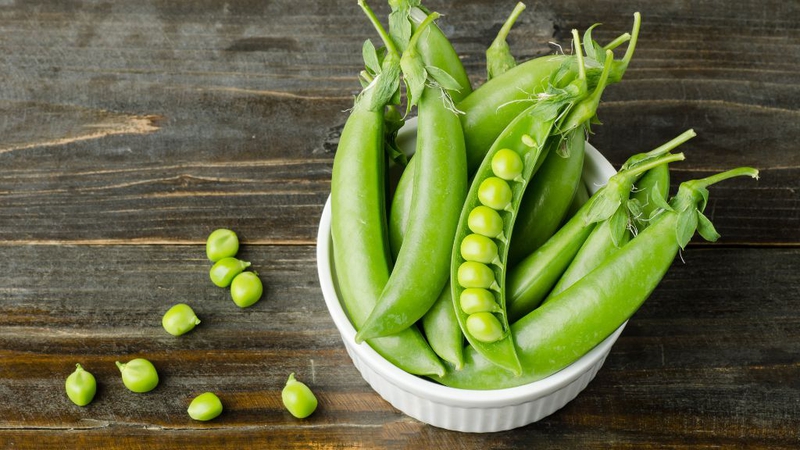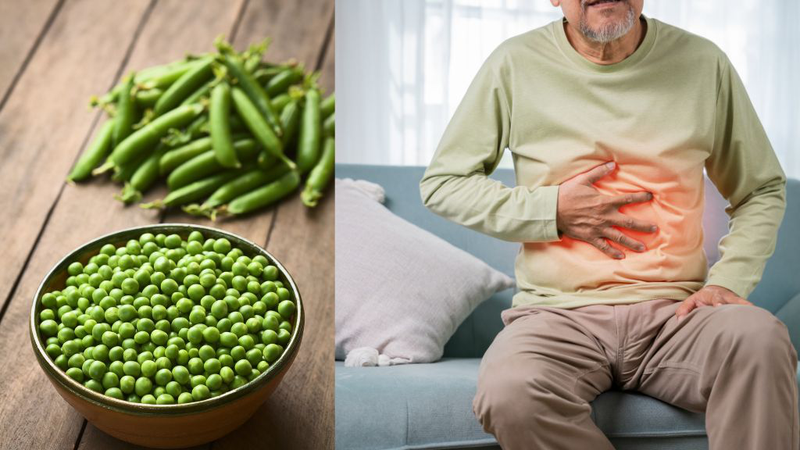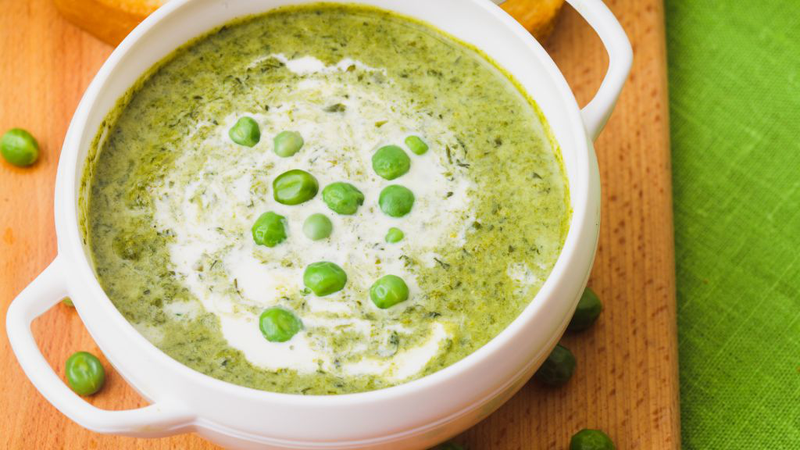It is necessary to explore the question of whether peas can be eaten in their shells and the nutritional benefits of enjoying peas. The article below provides detailed information on this issue and notes when eating peas. Read now to know how to effectively add peas to your diet!
Have you ever wondered whether peas can be eaten in their shells and whether eating pea pods has any health benefits? If you are a bean lover and interested in nutrition, this article will help you better understand peas, their benefits and things to note when enjoying this dish. Let’s explore!
Are peas good?
Peas are not only a delicious food but also bring many health benefits. Before we get into the question of whether peas can be eaten in their shells, let’s take a look at some of the main benefits of this food:
- Rich in nutrients: Peas are rich in essential vitamins and minerals such as vitamin C, vitamin K, vitamin A, folate, iron, magnesium and potassium. These nutrients help support the immune system, strengthen bones and improve brain function.

Peas have many nutritional values
- High fiber: One of the strengths of peas is their high fiber content. Fiber helps improve the digestive system, prevent constipation and support blood sugar control. In addition, fiber also helps you feel full longer, supporting the effective weight loss process.
- Plant protein: Peas are an excellent source of protein for vegetarians or dieters. The protein in peas helps build and repair muscles, as well as support the body’s metabolism.
- Powerful antioxidants: The antioxidant compounds in peas help protect cells from damage caused by free radicals, reducing the risk of chronic diseases such as heart disease, diabetes and cancer.
- Low in calories but full for a long time: Peas are low in calories but rich in nutrients and fiber, helping you feel full for a long time without worrying about gaining weight. This is the perfect choice for those who are pursuing a healthy diet.
Can you eat the shell of peas?
The big question that many people often ask is, can you eat peas with the pods? The answer is yes, but there are a few things to keep in mind.
- Pea pods are nutritious: Pea pods are high in fiber, vitamins, and minerals. When you eat the pods, you add fiber to your diet, which helps improve digestion and helps control blood sugar. However, not everyone can easily digest pea pods, especially those with sensitive digestive systems.
- Pea pods can cause stomach upset: For some people, eating pea pods can cause discomfort, gas, or bloating. This is especially true for people who are not used to high fiber in their diet. If you are new to eating peas, try eating a small amount of the pods to gradually acclimate your body.

Is it okay to eat the pods of peas? This is a question that has been asked.
So, are the pods edible? Yes, and if you want to get the most out of the nutritional benefits of pea pods, try steaming or cooking the peas until the pods are soft, which will make them easier to digest. You can puree the peas into soups or smoothies so the pods don’t cause discomfort. Also, soaking the peas overnight and cooking them thoroughly will soften the pods, making them easier to eat.
To ensure the safety of eating pea pods, choose fresh, clean peas. Fresh pods are softer and easier to digest than pods that have been around for a while. Also, rinsing the peas before cooking will help remove dirt and unwanted impurities.

Peas are best steamed or pureed for better digestion.
What should you pay attention to when eating peas?
To enjoy the maximum benefits of peas without experiencing health problems, you need to pay attention to the following points:
- Do not eat too much: Although peas are very good for health, eating too much can cause digestive problems such as bloating, flatulence or diarrhea. Eat peas in moderation and combine them with other foods to ensure nutritional balance.
- Note on preparation: As mentioned above, the way peas are prepared is very important to ensure that you can digest and absorb nutrients effectively. Avoid eating raw or undercooked peas, as this can cause digestive problems and upset the stomach.
- Combine with a balanced diet: Peas should be combined with other foods such as green vegetables, whole grains and protein sources from meat or plants to ensure that you get enough nutrients needed for the body. A varied diet will help your body function more efficiently and maintain good health.
If you have any health problems or are following a special diet, consult a nutritionist before adding peas to your daily menu. A nutritionist will help you determine the appropriate amount of peas and the best way to prepare them for your health.
Although rare, some people may be allergic to peas. If you are eating peas for the first time, try a small amount to make sure your body does not react negatively.
Peas are a nutritious food and have many health benefits. Whether or not you can eat the pods depends on how you prepare them and your health condition. By eating peas in moderation and keeping in mind the important points when eating them, you can enjoy the delicious taste and improve your overall health at the same time.





